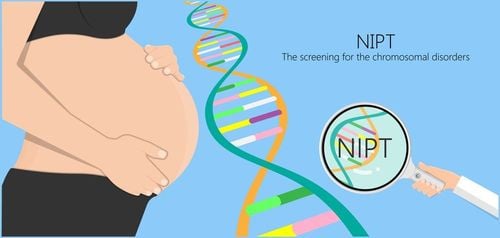Many mothers who discover they are pregnant while undergoing thyroid treatment often worry about whether taking thyroid medication could be harmful to their fetus. While studies indicate that thyroid medication has minimal effects on the fetus, pregnant women are typically prescribed the lowest effective dose to ensure safety. During this time, both the mother and baby need to be closely monitored throughout the pregnancy.
1. Does taking thyroid medicine affect the fetus?
If a mother has hypothyroidism or hyperthyroidism during pregnancy, it can adversely affect both her health and the development of the fetus. Therefore, to promote a healthy birth, women of childbearing age are advised to address thyroid issues before becoming pregnant.
A mother may have undiagnosed hypothyroidism due to autoimmune thyroiditis before pregnancy, which may not have been treated adequately. Additionally, women who have treated hyperthyroidism through methods such as surgical removal, radioactive iodine, or high-dose synthetic antithyroid medications may develop hypothyroidism during pregnancy. It is also possible for hypothyroidism that occurred in a previous pregnancy to persist in subsequent pregnancies.
Meanwhile, pregnancy can cause hyperthyroidism in the mother, due to changes in hormones and the size of the thyroid gland.

Here are the thyroid medications known to treat hypothyroidism and hyperthyroidism in pregnant women:
- Hypothyroidism:
Synthetic thyroid hormone medication, such as levothyroxine. This is a drug used to treat hypothyroidism in both men and non-pregnant women. For pregnant women, the dose can be increased by about 25 - 50%.
- Hyperthyroidism:
Synthetic antithyroid medication, such as carbimazole, methimazole, methylthiouracil (MTU), propylthiouracil (PTU), and thyrozol. Most of these synthetic antithyroid medication have side effects on the fetus, one of which is hypothyroidism in the fetus. However, among these synthetic thyroid medications, PTU and thyrozol are recommended for use because the rate of effects on the fetus is low.
In addition, beta-blockers are also used to help reduce some symptoms of the disease. However, the use of medication can pass into the fetus and affect the development of the fetus, causing the baby to be born with low birth weight. Therefore, medication should only be used when necessary.
2. Notes when using thyroid medication during pregnancy
If hypothyroidism or hyperthyroidism is detected during pregnancy, the mother should avoid worrying too much, instead, she can rest assured to use the medication as prescribed by the doctor, and closely monitor the health of the mother and baby. Here are some notes when using thyroid medication during pregnancy:
• For hypothyroidism:
When using the thyroid hormone levothyroxine to treat hypothyroidism, the mother should pay attention to checking thyroid function every 6-8 weeks, if the dose is changed, it should be after 4 weeks.
After giving birth, use the medication at the same dose as when not pregnant. Multivitamins taken during pregnancy can reduce the absorption of hypothyroidism medication, so the mother should take the medication about 2-3 hours apart.
• For hyperthyroidism:
PTU and thyrozol are two types of synthetic antithyroid medication that are preferred in the treatment of severe hyperthyroidism. However, it is important to note that treatment should be given at the lowest dose and that the mother and baby should be closely monitored for signs such as fetal heart rate, fetal development, and ultrasound to promptly detect whether or not a goiter appears in the fetus.

If hypothyroidism or hyperthyroidism is detected during pregnancy, the mother should avoid worrying too much, instead, she can rest assured to use the medication as prescribed by her doctor, while closely monitoring the health of the mother and baby. Here are some notes when using thyroid medication during pregnancy:
• For hypothyroidism:
When using levothyroxine thyroid hormone medication to treat hypothyroidism, the mother needs to pay attention to check thyroid function every 6-8 weeks, if changing the dose, after 4 weeks.
After giving birth, take the medication at the same dose as when not pregnant. Multivitamins supplemented during pregnancy can reduce the absorption of hypothyroidism medication, so the mother needs to take the medication 2-3 hours apart.
• For hyperthyroidism:
PTU and thyrozol are 2 types of synthetic thyroid-antithyroid medication that are preferred in the treatment of severe hyperthyroidism. However, it is important to note that treatment with the lowest dose is used, and the mother and baby need to be closely monitored for signs such as fetal heart rate, fetal development, and ultrasound to promptly detect whether goiter appears in the fetus or not.
To arrange an appointment, please call HOTLINE or make your reservation directly HERE. You may also download the MyVinmec app to schedule appointments faster and manage your reservations more conveniently.
To arrange an appointment, please call HOTLINE or make your reservation directly HERE. You may also download the MyVinmec app to schedule appointments faster and manage your reservations more conveniently.









